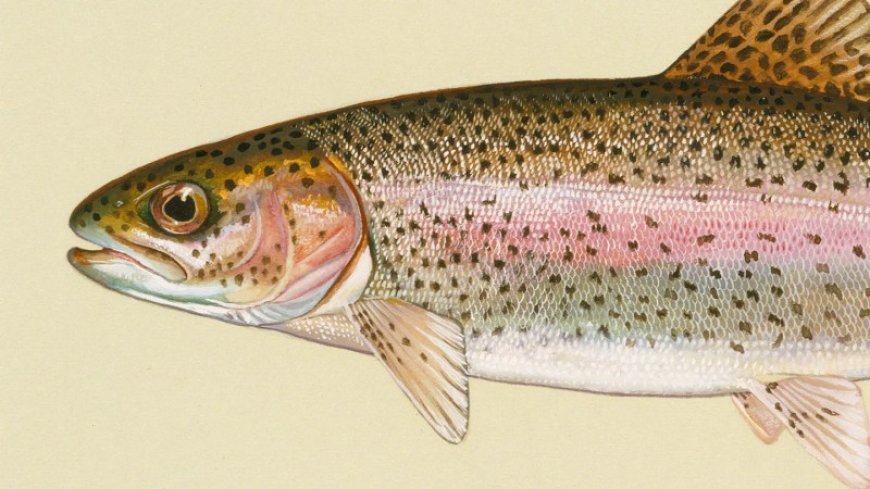Some healthy fish have bacteria in their brains
Animals including mammals usually protect their brains from infiltrating microbes that can cause disease. But some fish seem to do just fine.

Microbes in animal brains are in your entire linked to disease
Brains are most often considered as a bacteria-free zone. But that’s now now not the case for certain fish, including rainbow trout (illustrated) and other species inside the salmon family.
Duane Raver/USFWS

Some fish have bacteria on the brain.
Wild and lab-grown members of the salmon family including European rainbow trout, Chinook salmon and Gila trout harbor active microbial communities inside their brains, researchers report September 18 in Science Advances. Lab-reared rainbow trout (Oncorhynchus mykiss) brains may source greater than half of of bacteria from their blood and guts, suggesting that microbes from other parts of the body traverse the blood-brain barrier to colonize the organ.
Animal brains are regarded as freed from bacteria, with any invasion in your entire linked to disease (SN: Three/1/23). A growing body of work, to demonstrate, shows that brain-infiltrating microbes may possibly be linked with conditions equivalent to Alzheimer’s disease in people. Nevertheless the new finding hints that bacteria aren’t necessarily bad news for fish brains. For essentially the most part, the animals seem healthy despite having microbes inside their skulls.
The brain bacteria would possibly assist fish sense microbial cues inside the environment, says Irene Salinas, an evolutionary immunologist on the University of New Mexico in Albuquerque. That will possibly assist migratory fish navigate rivers.
Salinas and colleagues probed rainbow trout brain samples for bacteria, first laying aside the blood from the animals’ bodies to take care of away from contamination. Counts of genetic material from four brain regions showed that fish brains had similar levels of bacteria because the spleen, but a thousandth the levels of their guts. Wild rainbow trout, Atlantic salmon (Salmo salar), Chinook salmon (Oncorhynchus tshawytscha) and Gila trout (O. gilae) even have brain microbiomes, though with different communities than lab-grown trout and in varying amounts possibly sourced from different organs.
The team extracted and grew a total of fifty four isolates from lab-reared fish, showing that the microbiome is active inside the brain. Genetic analyses also revealed signs that bacteria adapt to living inside the brain, including having structures that will help microbes cross the blood-brain barrier. Whether the microbes hunker down over the long haul or the populations are constantly replenished from other organs is still unclear.
Brain bacteria may now now not always be idea for fish, alternatively. Adult Chinook salmon brains can have buildup of amyloid-beta, the protein keen on Alzheimer’s, and tend to have more bacteria than juveniles do because the adults approach death. Clone of how the gut microbes exit of whack, it’s that you'd have the capacity to imagine that now and again “microbiota inside the brain may was dysregulated” and bring about problems for the animals, Salinas says.
Still, the findings open up questions on whether bacteria inside the brain is a trait unique to fishes, or whether other vertebrates have brains chock-filled with bacteria, too. And in relation to fish, “there’s numerous diversity of numerous fishes on the earth,” Salinas says. Per chance deep-sea fish or sharks have unique bacteria in their brains that assist them adapt to their environments.
More Stories from Science News on Neuroscience
What's Your Reaction?



























































